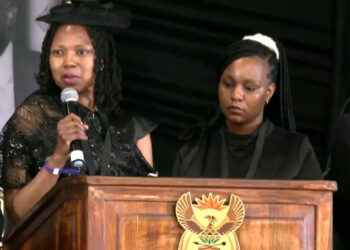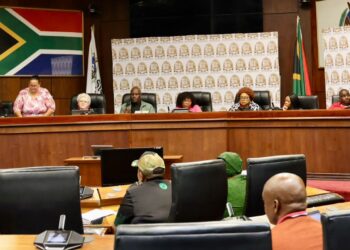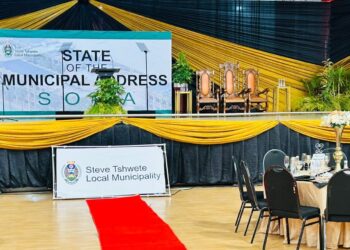Middelburg – The Middelburg High Court has heard closing arguments in the trial of eight men accused of the Pampoenkraal farm murders which happened in 2020 near eMkhondo (formerly Piet Retief), Gert Sibande District.
The case stems from the killing of Sifiso Thwala and Musa Nene, and the attempted murder of Sthembiso Thwala on 09 August 2020. The three men were travelling to Driefontein, to deliver groceries and money to Sthembiso Thwala’s mother when their Toyota sedan broke down about 10 kilometres from their destination, on a road near several farms that had recently experienced livestock theft.
While stranded, the men were confronted by security guards from Pampoenkraal farm, who allegedly believed them to be cattle thieves.
According to court testimony, the three were assaulted, forced into the boot of a car, taken onto the farm, and beaten further. Sifiso Thwala and Musa Nene later died from the assault, while Sthembiso survived but was seriously injured.
Facing murder and attempted murder charges, kidnapping and defeating the ends of justice are Werner Potgieter (48), the owner of the farm, his son Cornelius Lourens Greyling (26), and the others— Zenzele Mzikayise Yende (48), Moses Dlamini (59), Masodeni Elliot Msongelwa Dlamini (61), Sikhumbuzo Zikalala Nhlabathi (25), Mzwakhe Dlamini (48), and Nkosinathi Msibi (26) — are farm workers and security guards.
One of the former security guards, Sibonelo Vilakazi, later turned state witness after participating in the assaults.
During closing arguments,the defence argued that the state’s key witnesses Zenzele Coka and Sibonelo Vilakazi, were unreliable as their testimonies contradicted each other and their initial statements to police. Both men were originally suspects but later turned state witnesses.
The court heard that Vilakazi initially told police that accused Nkosinathi Msibi did not assault the deceased but later testified that he did. When challenged, he said he could not remember clearly. Coka, on the other hand, blamed police officers and even a magistrate for allegedly failing to capture his full version in written statements.
The defence highlighted contradictions between the witnesses’ accounts. For instance, Vilakazi testified that the deceased were taken from the car and beaten in front of it, while Coka claimed they were beaten behind the vehicle. Coka also said Yende used a sjambok to beat the deceased and the victim, while Vilakazi did not mention this detail. The defence submitted that such inconsistencies showed that both men were not credible.
State prosecutor Advocate Themba Lusenga contradicted that despite minor inconsistencies, both Coka and Vilakazi placed all the accused at the scene. Their testimony, he argued, was reinforced by Sthembiso Thwala, who also identified some of the accused, including Potgieter, during court proceedings.
Lusenga rejected the defence’s reliance on five statements made by some of the accused to their lawyer after the incident, calling them incomplete and inconsistent with the injuries reflected in the post-mortem reports.
According to the chief post-mortem, Thwala’s body had multiple bruises and acute subdural haemorrhage, injuries consistent with blunt force trauma from various objects.
The defence suggested the injuries could have resulted from the victims falling against a fence. Lusenga dismissed this, arguing that the extent and distribution of the bruises could not have been caused by a fall alone.
“The defence tried to confine the subdural haemorrhage to a fall,” said Lusenga. “However, cross-examination of the medical report made it clear that the injury is consistent with blunt force trauma, not simply a fall.”
He further submitted that Vilakazi’s testimony revealed that the accused fabricated statements to protect themselves. He told the court that the accused had intentions to kill.
The matter has been postponed for judgment, with the magistrate indicating that the court will confirm the date after checking her schedule.
























